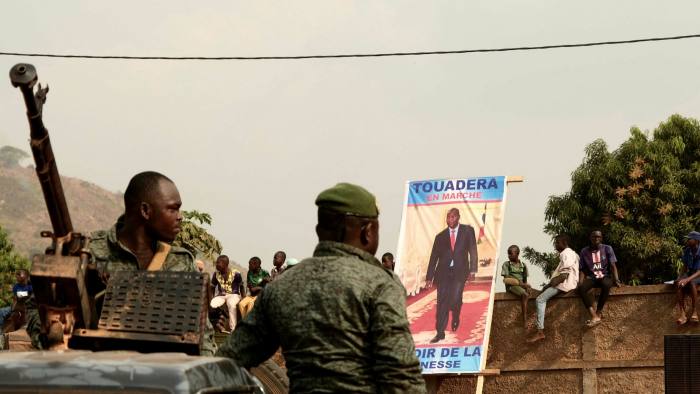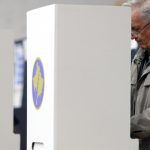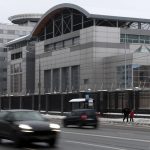Presidential and legislative elections in the Central African Republic (CAR) could test the ability of national and international actors alike to keep the country stable. The insurgents are unlikely to retain control over the occupied territories. However, the destabilization of the situation in the country can negatively influence on the election transparency and integrity. The incumbent president can use counterinsurgency operation to strengthen his positions and struggle with opposition candidates.
Decemver,19 three rebel groups in opposition to President Faustin Assange Tauder announced creation of the so-called Coalition of Patriots for Change or CPC.
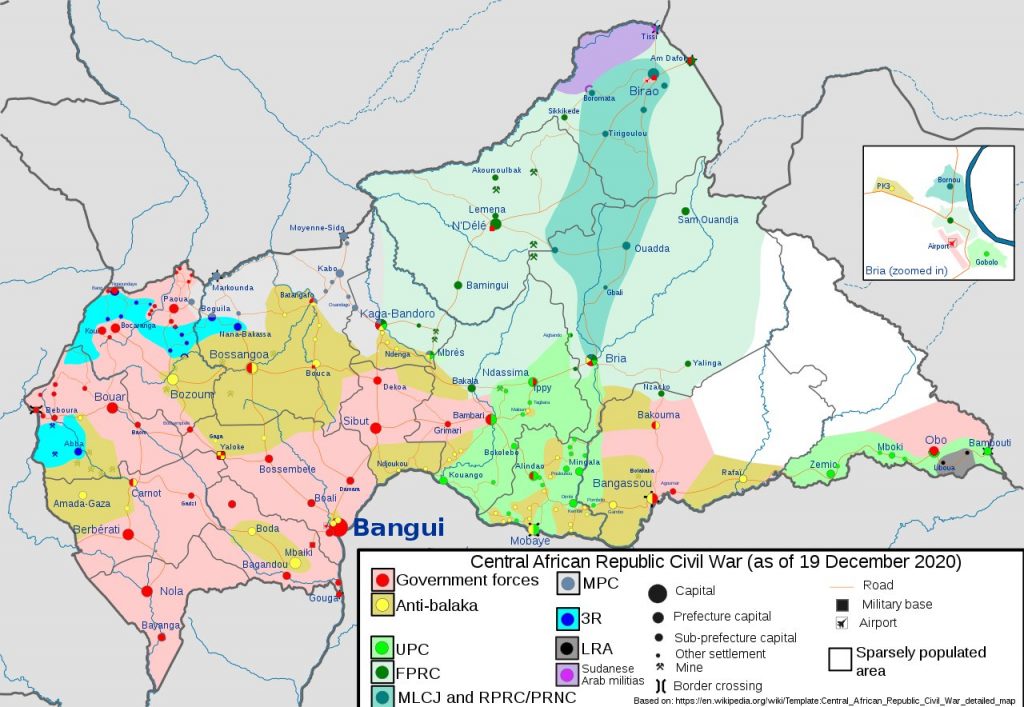
The insurgents are trying to prevent the country’s president Faustin-Arcanjo Touadere from being re-elected for a second term. On December 20, more than 1,000 insurgents took control of the city of Mbaïki, the capital of the prefecture of Lobay, located near the CAR’s capital, Bangui. According to the CAR’s government, the offensive on the Bangui advanced on December,21. As a result, the insurgents occupied the center of the region located to the south and west of the country’s capital, previously considered to be as the safest in the country.
Anj Maxim Kazagi, a representative of the CAR government, said that Rwanda had sent several hundred troops to help the regime; the fighters are allegedly already in position and involved in battles. According to Rwandan Defence Forces, they deployed its troops in response to the targeting of the Rwanda Defence Force contingent under the UN Peacekeeping force by rebels supported by François Bozizé.
According to the AFP, Russia has also transferred 300 soldiers and heavy weapons to the republic to suppress the uprising and help the regime.
It is known that CAR president Faustin-Archange Touadera has been guarded by the Wagner group mercenaries for a long time. Moreover, they ensure the regime’s security system.
As known, the CAR troops and the Wagner group have suffered heavy losses in battles with insurgents.
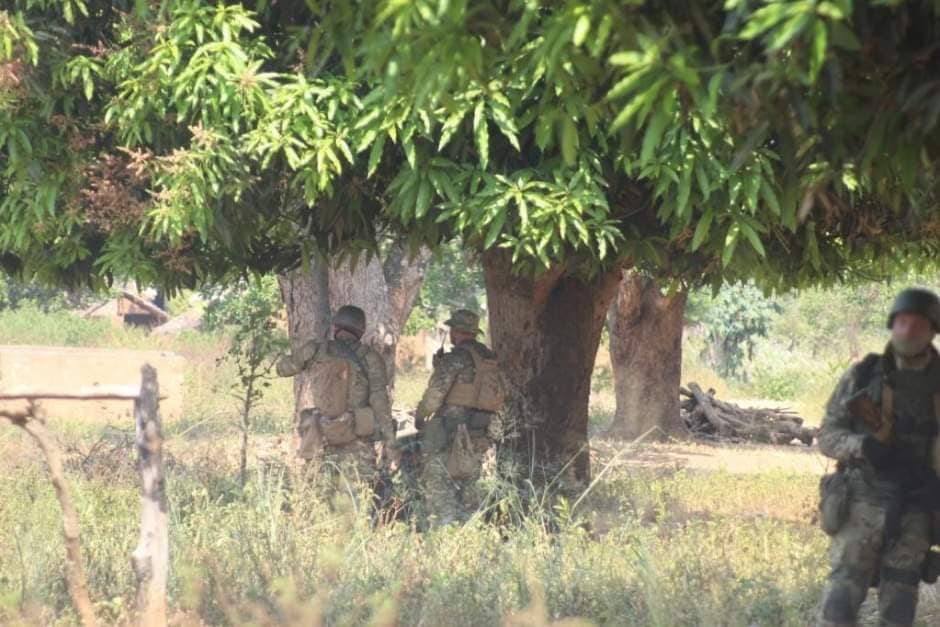
The insurgents are mainly composed of representatives of the southern peoples who were part of the Anti-balaka alliance group, self-defense of the Christianized population in confrontation with the Muslims living in the north. The leader of this group, Patris-Eduard Ngaisona, is accused of war crimes and is investigated by the International Criminal Court. After the peacekeepers being reinforced by the Rwandan military, the government got the city of Bambari back.
The authorities have accused former President François Bozizé Yangouvonda of getting back by thwarting the December 27 election. Bozizé was president from 2003 to 2013. He is listed as having risen in army ranks under Jean-Bedel Bokassa in the 1970s.
After Bokassa’s ouster, Bozizé served as defense minister from 1979 to 1981 and then as minister of information. Bozizé took part in a failed 1982 coup against president Andre Kolingba, after which he fled the country. Years later, he served as army chief of staff under president Ange-Félix Patassé, and began a rebellion against him in 2001. In March 2003, his forces captured the capital Bangui while Patassé was out of the country. In 2012, rebel forces accused him of not honoring peace agreements made during the CAR bush war in 2007 and Bozizé fled to Cameroon.
In December 2020, the CAR Constitutional Court rejected the former president’s request to run in the election, citing the charges brought against him.
As of Rwanda, its involvement in the conflict is an opportunity to demonstrate the potential to give a quick response in the peacekeeping activities and strengthen its position in the African region. The CAR and Rwanda are separated by the territory of the DRC where the permanent chaos in the eastern provinces (Ituri, North Kivu) leads to the concentration of various groups of militants from the CAR and Uganda, including jihadists. Thus, Paul Kagame sees the preservation of a certain influence of the DR Congo and the environment of problem areas as a strategic task.
Russia has mining recognition permits in the Yawa and Pama CAR’s regions granted to Lobaye Invest Sarlu, a Russian company to identify possible gold and diamond deposits. Lobaye Invest is now present near the cities of Ndele, Bria, Birao and Alindao. Its director, Evgueny Khodotov, though discreet, is reputedly very influential in Bangui. However, the real beneficiary is Eugeny Progozhine, who is close to President Putin.
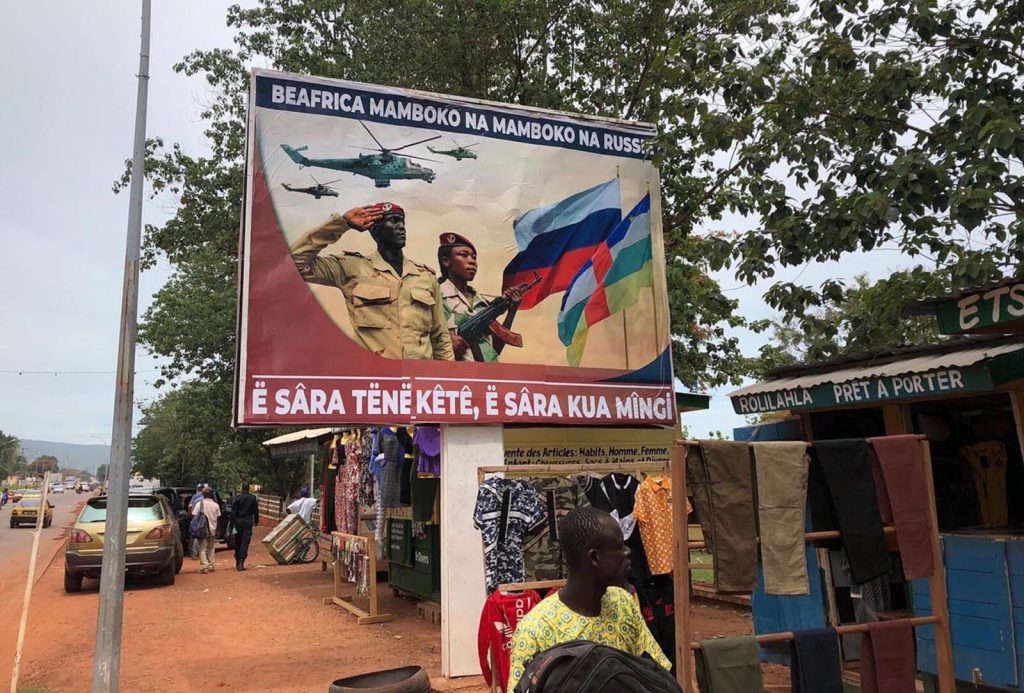
Valery Zakharov, security advisor to President Touadéra. He does not hesitate to summon ministers and deputies nor has he any qualms about meeting with the leaders of armed groups, in particular, Noureddine Adam, the head of the Front Populaire pour la Renaissance de Centrafrique (FPRC). He is also said to be in regular contact with Michel Djotodia, the former president in exile.
Zakharov has links with the Federalnaya Sluzhba Bezopasnosti (FSB), the Russian internal intelligence services, and to have obtained Central African nationality. He often has lunch at the Russian Embassy with chargé d’affaires Viktor Tokmakov and meets regularly with Mikhail Bogdanov, the Deputy Minister of Foreign Affairs for Africa and the Middle East.
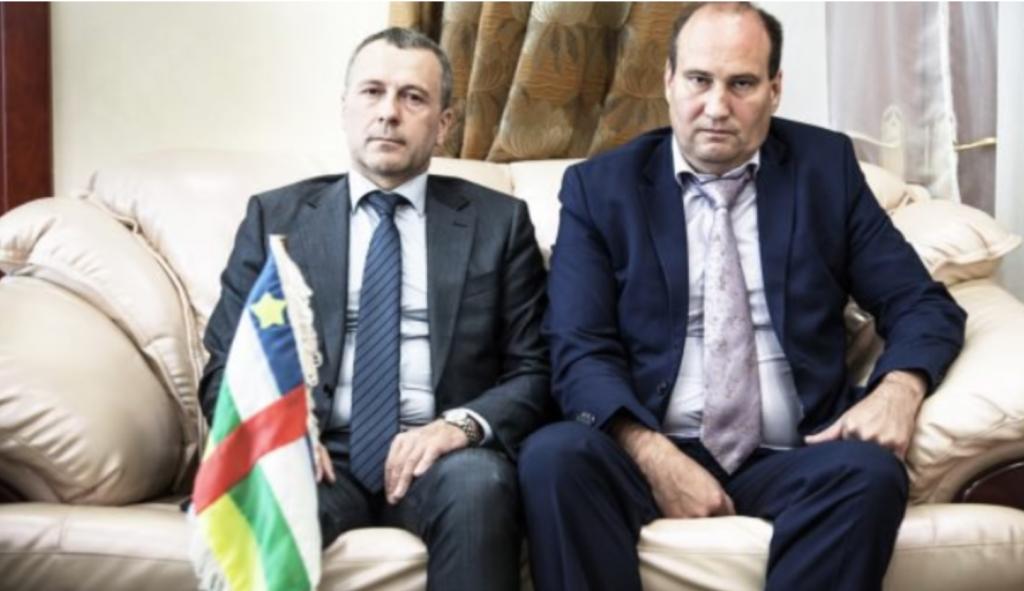
There are two Russian PMC Wagner in CAR: Wagner, a private security company, provides more than a thousand instructors to the Central African Republic, ensures the security of various institutions, and plays a leading role in the training of the Presidential Guard and the army. Like Sewa Security Services, another Russian company operating in the Central African Republic, according to their business cards, some of its employees are “Presidential Advisers”. Touadéra works with Russian businessman Dimitri Mozer, the owner of a transport company (Mozer International) who is also a consul of the CAR in Belgium and possibly FSB affiliates. Mozer is also said to have connections to the diamond dealer, Abdoul Karim Dan Azoumi, head of the Minair aviation company and former Seléka financier.

Russian PMC’s bodyguard (left) of Taudery.


